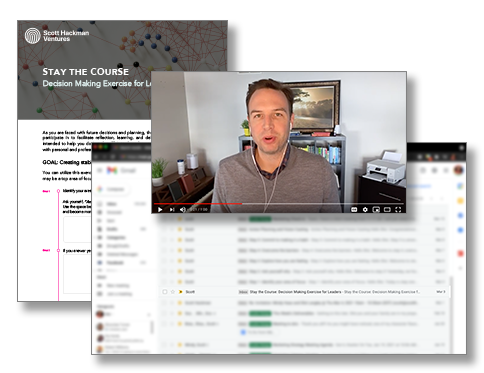Why is gratitude important in leadership?
For many leaders, the daily practice of gratitude isn’t something that is often given top priority, however, the positive impacts gratitude can have on you and your team may cause you to think again. Historically, our brains are hard-wired for the negative—to see what’s wrong, to solve problems, to identify the critical voice that echoes throughout the day. This natural cycle repeats itself over and over again, often leaving many leaders feeling defeated, exhausted and overwhelmed. Practicing gratitude in leadership, causes leaders to take a deeper look inside what’s motivating behavior and as a result, what’s motivating team members as well. Did you know it is scientifically proven that when gratitude is practiced regularly, mental and physical health begin to shift and as a result, individuals become better leaders?
How can an attitude of gratitude make you a better leader?
According to Psychology Today, by turning your outlook into one of gratitude, it “Stimulates two important regions in our brains: the hypothalamus, which regulates stress, and the ventral tegmental area, which plays a significant role in the brain’s reward system that produces feelings of pleasure. Additionally, researchers found that both voluntary and involuntary smiling had the same effect on brain activity. Interestingly enough, you can convince your brain and body that you’re happy even when you’re not just by forcing yourself to smile.” Guiding your brain into a new pattern is proven to be beneficial in the long-run and we believe it is an essential leadership skill.
Dr. Brene Brown, PhD, LMSW spent 12 years researching 11,000 pieces of data on joy and gratitude and she states, “I did not interview one person who had described themselves as joyful, who also did not actively practice gratitude.”
Her findings went on to show that practicing gratitude invites joy into our lives. “Practice is the part that really changed my life, that really changed my family and the way we live every day. When I say practice gratitude, I don’t mean “the-attitude-of-gratitude” or feeling grateful, I mean practicing gratitude,” said Brene.
Now, let’s dig deeper into how leaders can hone this skillset.
How can leaders cultivate gratitude?
As a leader, making tangible gratitude practice a priority and a habit results in rewiring the brain’s thought process and cultivating a more productive and joyful life not only professionally but personally as well. Choosing whatever method is going to be most effective for you is key, some may use journals to record daily gratitude while others may set aside a specific time each day to name a grateful thought. While the method is up to your discretion, the benefits of practicing gratitude within your leadership role are evident.
Practicing daily gratitude has been proven to:
- Improve physical health
- Improve sleep
- Improve psychological health
- Increase empathy
- Reduce aggression
- Allow for a more social connection
- Enhance self esteem
- Improve mental strength
All of these benefits are not only good for overall health, but they also translate into better and stronger communication with team members and what leader doesn’t want that? You may consider sharing this practice with your team members on a regular basis to cultivate higher team morale and build trust. For instance, set aside time before each weekly team meeting for team members to share one thing they are grateful for or to highlight someone who they work with that they’re feeling especially grateful for that day. Don’t just stop there, be sure to share something specific that you are grateful for too!
Why do we believe that gratitude is an essential leadership skill?
By practicing gratitude, daily, on a personal level and sharing this practice with your team as much as possible, you’re making a conscious effort not to overlook the small things in life, which often results in becoming dissatisfied. By focusing on gratitude for the physical things, it deafens the voice that says, “this isn’t good enough” or “we need more.”
How can we help?
Feeling the importance of implementing the practice of daily gratitude into your leadership, but not sure where to begin? Our executive leadership coaching works specifically to guide you through a daily routine that fosters growth and builds emotional intelligence. Simply, fill out THIS FORM today to sign up for a free coaching consultation!


Scott Hackman is the Founder and CVO of Scott Hackman Ventures. He has over 15 years of experience in business advising, coaching, and leading growth through transitions.
Meet Scott.


